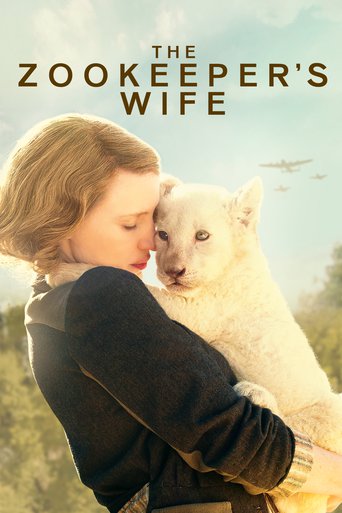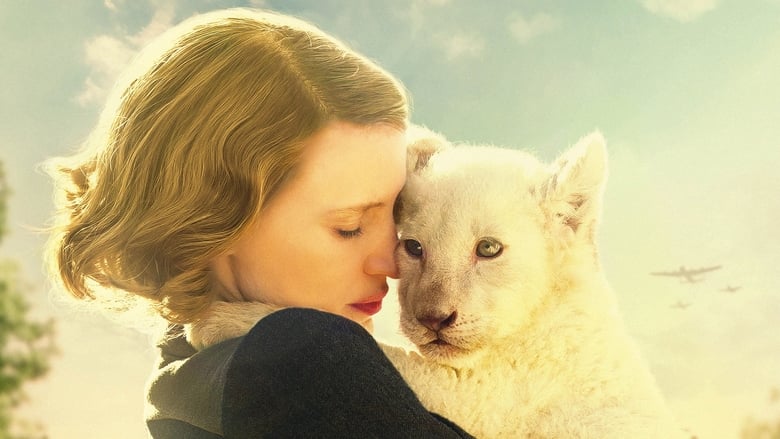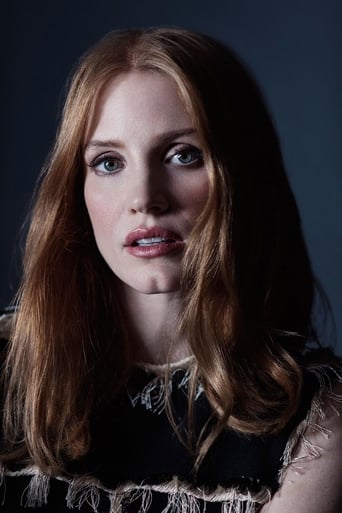The Zookeeper's Wife (2017)
The account of keepers of the Warsaw Zoo, Jan and Antonina Zabinski, who helped save hundreds of people and animals during the Nazi invasion.
Watch Trailer
Cast
Similar titles

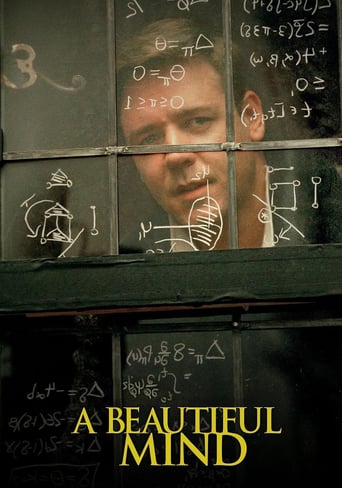
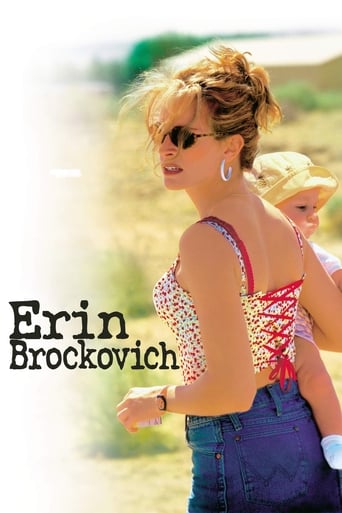


Reviews
Pretty Good
While it is a pity that the story wasn't told with more visual finesse, this is trivial compared to our real-world problems. It takes a good movie to put that into perspective.
Not sure how, but this is easily one of the best movies all summer. Multiple levels of funny, never takes itself seriously, super colorful, and creative.
It is encouraging that the film ends so strongly.Otherwise, it wouldn't have been a particularly memorable film
I really enjoyed the opening moments of the film when the zookeepers wife is cycling through the zoo accompanied by a colt-sized young camel running to keep up and animals greeting them as they pass by their enclosures. The film is an homage to Antonina and Jan Zabinski. In 1968 the state of Israel honored the Zabinskis with the title "Righteous Among the Nations," a recognition that was given to all those brave citizens who helped save Jews during the Holocaust. To understand the extent of the bravery you need to know that anti-Semitism was not limited to Hitler's minions in Europe. The largest Jewish population in pre-war Europe was in Poland, with about 3,000,000 Jews. Germany had only about 500,000, and they were more assimilated into the German culture, with many German Jews decorated for their World War I military service. While some native Poles were friendly with Polish Jews, anti-Semitism was rampant. During the Nazi occupation of Poland more Poles cooperated with the Nazi's denigration of Jews and reporting Jews in hiding to the Germans was mush more likely than helping to hide Jews. It is notable that even after the Nazis were defeated remaining Jews in Poland were subjected to another Polish Pogrom, the "Kielce Pogrom" in 1946, based on the centuries old blood libel, that Jews were kidnapping Christian children to use their blood for making Passover matzahs (never mind that Jewish law strictly forbids eating anything contaminated with any kind of blood, hence no rare steaks in Kosher cooking). So to risk the Nazi wrath by hiding Jews was particularly brave in Poland. But this film was made in Poland and Poland does not admit to its complicity in the Holocaust. When the Nazis began their removal of Jews from the walled-in Warsaw Ghetto to extermination camps, the inmates of the Ghetto resisted with a handful of guns and improvised explosives. That Jewish resistance broadcast appeals for support to the larger anti-German Polish resistance but none was forthcoming. The battle of the Warsaw Ghetto lasted 28 days. In the Zookeepers Wife there was no Jewish resistance at all during any of that time.As the war turned against the Germans in 1944, the Soviet Army was approaching Warsaw, and the Polish resistance was encouraged to launch a rebellion against the German occupation, the Warsaw Uprising of 1944. However, instead of pushing into Warsaw Stalin held his Red Army standing at the line of the Vistula River. Stalin was content to encourage the Polish resistance to rise up and be defeated by the superior Nazi forces. Stalin allowed the Nazis to kill off much of the surviving Polish aristocracy and other Polish leaders so that it would be easier for his installation of a puppet communist government after the Red Army occupied Warsaw. (As part of a secret protocol of the pre-war Molotov-Ribbentrop Pact, the Soviet Union had previously occupied a portion of eastern Poland two weeks after Germany invaded Poland in 1939.) The film addresses this only in briefly showing the defeat of the 1944 Polish resistance without any explanation of what led to it and their betrayal by Stalin.
After Hitler's Luftwaffe bombings of Poland's capital, Warsaw; caretakers Jan Zabinkski (Johan Heldenbergh) and his wife Antonina (Jessica Chastain) turn their zoo into a different kind of sanctuary. While the Nazi' occupation is rounding up Jews to be taken away to be beaten and murdered; the zookeeper's wife works with a high ranking Nazi to protect the zoo animals. At the same time, Antonina and her husband work with the Resistance in an effort to hide Jews from the wartime carnage. Disturbing scenes of destruction, people and animals being shot; implied rape scene along with brutal battles, bombing and horrific explosions relate the drama of this true story. Compassion and courage against tremendous odds shows inspiration. Overview of the remaining cast: Daniel Bruhl, Frederick Preston, Michael McElhatton, Shira Haas, Timothy Radford and Efrat Dor.
Chastain leads a talented cast in this real life story. Her emotional performance carries the film brilliantly. As an animal lover, there were a few hard parts to watch. As a human, it reminds us we are all only human and must be treated with dignity, respect, care, and empathy. The film kept me riveted, but I did struggle to understand some of the dialogue.
I enjoyed The Zookeeper's Wife and would recommend it to most audiences. Skillful direction by Niki Caro, excellent sets and costumes, a slightly washed-out look to the cinematography which nonetheless has a full range of color, and a capable cast. The story is based on the actions of the owners of the Warsaw Zoo, who saved the lives of more than three hundred Jews during the Nazi occupation of Poland.Nonetheless, the performance of Jessica Chastain is the single most important factor in the film. Unlike many American actors, she understands that a Polish woman of the 1940s does not look, move, or carry her features like a contemporary American. So fully does Miss Chastain inhabit her character that I never had the sense of an actress making choices.The film is a bit long and a bit slow, like most films today, but not to a damaging extent. I particularly admired the way that the official from the Berlin Zoo who becomes a Nazi officer, well played by Daniel Bruhl, has certain scruples and personal moral standards although he embraces the Nazi philosophy. He's a villain, but not a cardboard villain, and part of the suspense of the film is waiting to see which lines he will cross and which he won't.
